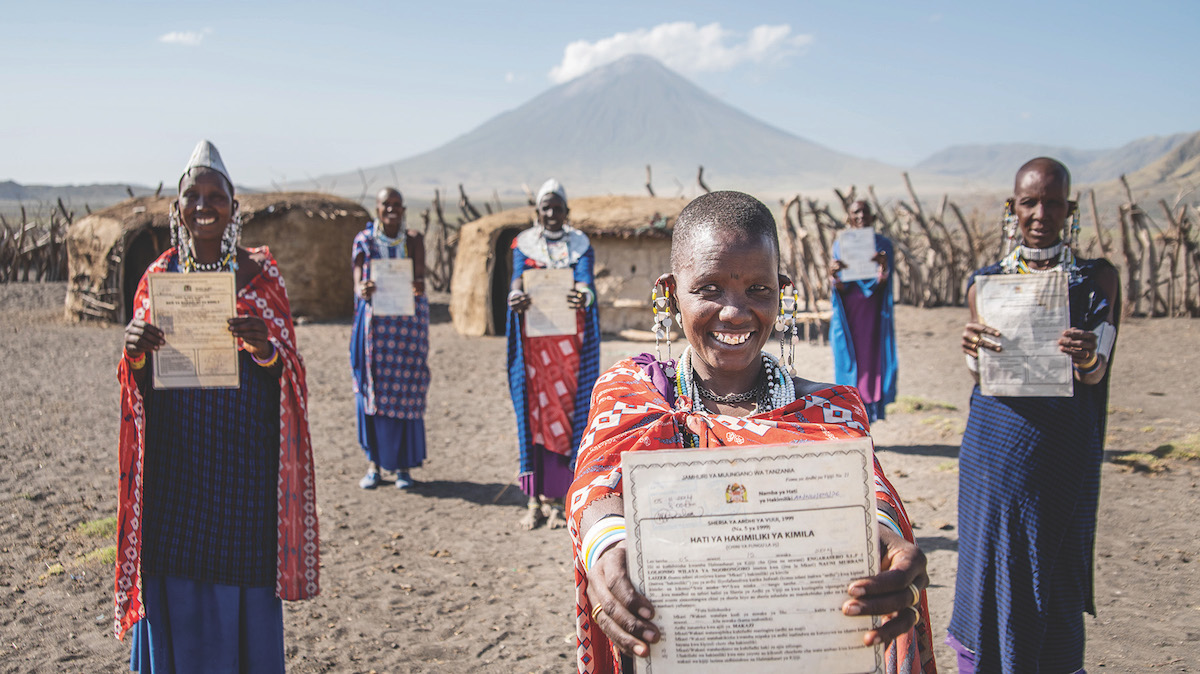Women Are Vital Change Agents

While Maanda Ngoitiko was growing up in her Maasai community in northern Tanzania, a blade of grass was the symbol of a woman’s place in society, growing quietly. If she had the privilege to attend a meeting, waiting for a man’s invitation would be her only opportunity to speak.
At five years old, Ngoitiko was one of only two girls her age selected to begin school. Later, with help from a local member of Parliament, she rejected a forced marriage and left her village to continue school.
“I was so scared, so lonely, and felt powerless,” she says. “But with education, I learned self-reliance and resourcefulness.”
A Crisis of Natural Resources
In 1995, Ngoitiko returned to her village, hoping to help the Maasai women and girls enhance their voice, agency, and their rights. What she found was a land crisis. The Maasai of Tanzania are one of the few Indigenous pastoral communities raising livestock on the country’s northern plains. With growing pressures on natural resources, including land, water, and forests, plus harsh droughts from climate change, life for pastoralists is hard. Additionally, women bear the brunt of feeding families and caring for children with dwindling resources and few opportunities to escape poverty.
Ngoitiko knew that women needed to be part of the solution. After all, she says, in this culture, it is women who know the land best, as they search for and collect water, food, and medicine. Ngoitiko helped organize a meeting of 500 local women. They united with the mission of bringing education, economic opportunity, and property ownership to Maasai women – to empower new female leadership to save their pastoral way of life.
“As Maasai women, we focus on education because it helps us to become decision-makers, innovators, and to respond to the climate crisis,” Ngoitiko says.
Transforming from Within
Nearly 30 years later, that group, now the Pastoral Women’s Council, reaches and transforms the lives of over 20,000 Indigenous women annually. They fund girls’ scholarships, enhance women’s rights and agency, change negative social norms, drill for clean water, support women’s economic empowerment, and women’s health and wellness.
Maasai women are now business owners and community leaders and they negotiate with local and federal governments on issues ranging from sustainable water management to climate change adaptation.
Solidarity sits at the center of this work – and the Pastoral Women’s Council works hard to include men and boys to change traditional attitudes. “If women and men are collaborating, doesn’t that make for greater success and happiness?” Ngoitiko asks.
A Multi-Front Endeavor
Yet the challenges for the Maasai continue to grow, from ongoing land rights challenges, to increased uncertainty and worsening droughts. The Pastoral Women’s Council seeks long-term strategic partners and to empower ever more highly motivated young women to stand up for their rights and make a lasting difference to their community.
Maasai women have come a long way from that single blade of grass, says Ngoitiko. ”We have created a model of constant learning that will produce the leaders of the future. Together, we planted a tree. Now, it is bearing fruit.”
Pastoral Women’s Council
Donate now!pastoralwomenscouncil.org
(+255) 767-237-470
Head of Programs: Ruth Kihiu
Mission
To sustainably empower pastoralist women and girls in northern Tanzania to ensure their rights and voices are respected, they are economically empowered, and they have access to quality social services.
Begin to Build a Relationship
We know you care about where your money goes and how it is used. Connect with this organization’s leadership in order to begin to build this important relationship. Your email will be sent directly to this organization’s director of development and/or Executive Director.